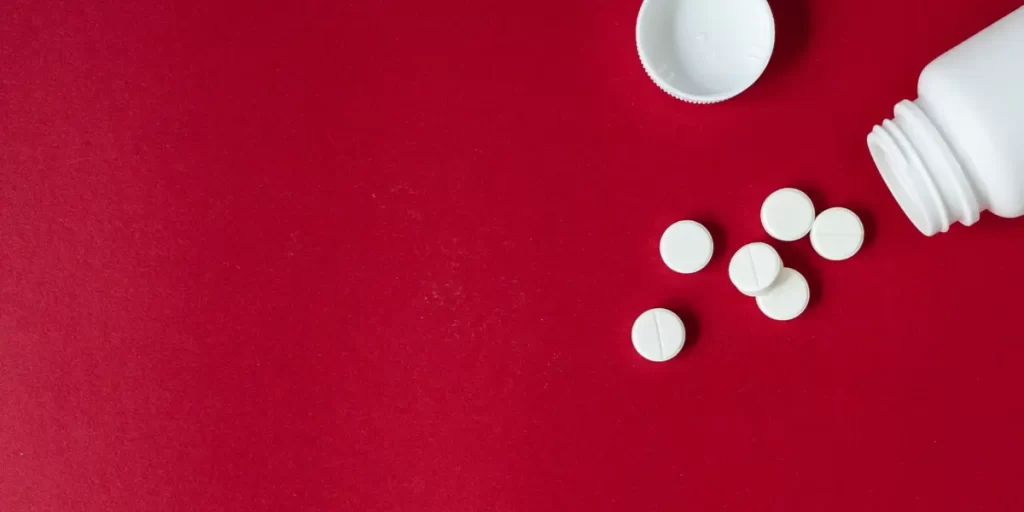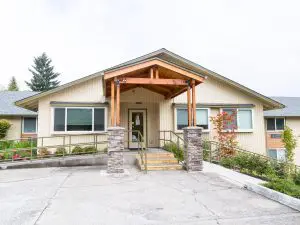Ativan Treatment in Washington and Oregon
Written by Renee Deveney
& Medically Reviewed by Dr. Annie Tye, PhD
Medically Reviewed
Up to Date
Last Updated - 6/17/2022
View our editorial policy
Ativan (generic name lorazepam) is one of the most commonly prescribed anti-anxiety medications in the country. A 2018 report found that Ativan was the 3rd most prescribed benzodiazepine and the 55th most prescribed drug overall. In spite of its favor among prescribers, Ativan is associated with a high risk for dependence and addiction even when used as prescribed. Understanding Ativan tolerance, dependence and addiction, can help you find options for Ativan treatment and rehab. After you safely taper off of Ativan, you can use the tools and skills learned during treatment for long-term healing from addiction.
Addiction Treatment Options
Treatment and recovery from Ativan addiction are associated with a variety of challenges that are somewhat unique to benzodiazepines. Although rare, rapid and unmanaged Ativan detox can have fatal consequences. Ativan detox should always be done under the supervision of medical professionals who can intervene in the case of unexpected complications. People who are seeking Ativan treatment should find a quality rehab center that has experience in dealing with the complexities that are inherent to Ativan addiction treatment.
The first step toward recovery consists of an evaluation with the rehab facility that you’ve chosen. The evaluation will assess your current and past substance use and medical history. In addition, your intake counselor will identify your short- and long-term treatment and recovery goals. Finally, a comprehensive plan, including a tapering program, that is tailored to suit your needs will be developed.
Medical Detox
Medical detox for Ativan normally begins in conjunction with the start of your tapering program. Although the ultimate goal of detox is to rid your body of Ativan and its metabolic byproducts, rapid cessation of benzodiazepines (quitting “cold turkey”) can be dangerous, even lethal. The taper allows for a gradual weaning off of Ativan, minimizing the shock to your brain, which has grown dependent on Ativan to maintain an abnormally sedated state. For these reasons, attempts to flush Ativan out of your system may actually bring withdrawal symptoms on faster.
Unfortunately, even gradually tapering your dose is often associated with uncomfortable physical and psychological withdrawal symptoms. In some cases, your medical team may deem it appropriate to provide you with a pharmacological intervention (often a benzodiazepine with a longer half-life than Ativan) that can substantially mitigate the discomfort associated with withdrawal.
Residential Rehab
Following the detox period, many people find that participating in a residential rehab program allows them to navigate the first days and weeks of sobriety. Ativan rehabilitation is challenging, particularly in the early stages, and residential programs provide safe, secure places to eliminate triggers and minimize the risk of relapse. It is important to make sure that the Ativan rehab program that you choose has a multidisciplinary team that is experienced with the physical and psychological aspects of Ativan treatment and rehab.
Outpatient Rehab
In cases of mild Ativan use disorders, an outpatient program may be sufficient. However, most cases of Ativan rehab involve transitioning from a residential program to an outpatient program. Outpatient programs vary in intensity and duration, and most clients will start outpatient treatment in a relatively intense program and gradually progress through less and less intense programs.
Regardless of the intensity or duration of the outpatient program, the goal remains the same: provide clients with the tools and techniques they need to avoid triggers, maintain abstinence and facilitate behavioral changes that support long-term sobriety.
Dual Diagnosis
Mental health disorders are often overlooked when people are being treated for substance use disorders, but many people misuse drugs in an attempt to manage emotional dysregulation. For example, people who struggle with Ativan use disorder may have initially been prescribed Ativan to manage an anxiety disorder. Quality rehab programs have multidisciplinary teams that can assess whether a dual diagnosis is appropriate and, if it is, can address substance use and mental health disorders holistically.
Aftercare and Sober Living
Many people who have maintained long-term sobriety believe that recovery is a lifelong commitment that requires constant upkeep. Many rehab facilities offer aftercare programs or planning that provide long-term support for clients. Although aftercare programs can take many forms, they typically share a common theme: People in recovery are more successful when they have access to counseling and peer support.
Many people who participate in aftercare programs develop strong friendships and supportive social networks. Many aftercare groups enjoy recreational activities and social outings. Other components of aftercare may include individual or group counseling sessions, relapse prevention and case management.
How Long Does Ativan Rehab Take?
There is no hard-and-fast rule that determines how long Ativan treatment and rehab will take. Several factors contribute to the overall length of rehab, including the degree to which Ativan misuse occurred (chronic heavy use may require substantially more time in rehab than mild dependence). Detox and residential care may take anywhere from a week to several months, and subsequent outpatient programs may also last for several months. It should be noted that sobriety after addiction is often a lifelong pursuit, so rehab and recovery may be indefinite.
What Does Ativan Rehab Cost?
Rehab costs vary depending on the program, quality of care and whether medical interventions are needed. Many insurance programs cover part or most of the expenses associated with drug rehab. Detox and acute care can cost several thousand dollars, and a 30-day residential program can cost anywhere from a few thousand dollars to well over $25,000. Intensive outpatient programs typically cost anywhere from a few thousand to tens of thousands of dollars for a 30-day program. Less stringent outpatient care can range from $1,000 to $10,000 for 30 days. There may be additional costs that are associated with the rehab program, including admission fees, unexpected medical costs, pharmacotherapy, and enrollment in aftercare programs.
Does Insurance Cover Rehab?
Many insurance policies (including Medicaid and Medicare) may cover at least some of the cost of your rehab. Make sure that the rehab facility you are interested in is included in your insurance provider’s network. Rehab without insurance may also be possible through:
- Government-assistance programs: Many states, including Oregon and Washington State, offer funding assistance for people seeking rehab.
- Sliding-fee programs: Many public and private facilities offer sliding fee scales.
- Private-pay programs: For clients who can afford to pay out-of-pocket, these programs often provide outstanding care in luxurious settings.
Finding Ativan Treatment in Washington & Oregon
When choosing a treatment center for yourself of your loved on in the Pacific Northwest, it may be difficult to know where to start. Some factors to consider when it comes to choosing a rehab center include:
- Methods of treatment provided: Quality rehab facilities can address physical, mental, and emotional issues that are associated with the uncomfortable process of Ativan detox and withdrawal. Look for facilities that can assess whether you are a candidate for a dual diagnosis.
- Accreditation: Accreditation with The Joint Commission or CARF International ensures a certain standard of care. The Recovery Village Ridgefield is accredited by the Joint Commission.
- Duration of treatment: Look for programs that quality care based on your personal needs. In addition, quality rehab centers are proactive about providing clients with aftercare programs.
- Staff-to-patient ratio: Residential rehab facilities with a low staff-to-patient ratio often provide more individualized care. A ratio of less than five-to-one ensures that the staff can dedicate substantial time to each client.
The Recovery Village Ridgefield offers both an accredited residential treatment center and detox center easily accessible to residents of Washington state and Oregon.

The Recovery Village Ridgefield
888 Hillhurst Rd. Ridgefield, WA 98642
(855) 703-1445
Key Points: Understanding Ativan Addiction Treatment and Rehab
Ativan use disorder can be challenging to overcome, but it is possible. Key points to keep in mind as you consider Ativan treatment and rehab include:
- Ativan detox and acute withdrawal are associated with unique challenges, including the need to taper, that are best addressed in a quality rehab facility with a multidisciplinary team
- Ativan addiction treatment facilities that can evaluate whether a dual diagnosis is appropriate often provide the best outcomes for people in the early stages of recovery
- There are many ways to offset the costs of Ativan treatment (insurance, sliding fee scales)
- Participating in rehab and aftercare programs is a valuable way to develop strong support networks
If you or a loved one struggle with Ativan use disorder, help is available. Call The Recovery Village Ridgefield today to learn about customized, comprehensive rehab programs to fit your needs. Recovery is within your reach.
Sources
Fuentes, Andrea V; Pineda, Moises D; Nagulapalli Venkata, Kalyan C. “Comprehension of Top 200 Prescribed Drugs in the US as a Resource for Pharmacy Teaching, Training and Practice.” Pharmacy, May 2018. Accessed August 15, 2019.
Tan, Kelly; Rudolph, Uwe; Luscher, C. “Hooked on benzodiazepines: GABAA receptor subtypes and addiction.” Trends in Neuroscience, May 2014. Accessed July 27, 2019.
University of Colorado Boulder. “Neuroanatomy and Physiology of the “Brain Reward System” in Substance Abuse.” The Institute for Behavioral Genetics. Accessed August 14, 2019.
Lann, Meredith; Molina, D.K. “A Fatal Case of Benzodiazepine Withdrawal.” The American Journal of Forensic Medicine and Pathology, June 2009. Accessed July 27, 2019.
View Sources
Fuentes, Andrea V; Pineda, Moises D; Nagulapalli Venkata, Kalyan C. “Comprehension of Top 200 Prescribed Drugs in the US as a Resource for Pharmacy Teaching, Training and Practice.” Pharmacy, May 2018. Accessed August 15, 2019.
Tan, Kelly; Rudolph, Uwe; Luscher, C. “Hooked on benzodiazepines: GABAA receptor subtypes and addiction.” Trends in Neuroscience, May 2014. Accessed July 27, 2019.
University of Colorado Boulder. “Neuroanatomy and Physiology of the “Brain Reward System” in Substance Abuse.” The Institute for Behavioral Genetics. Accessed August 14, 2019.
Lann, Meredith; Molina, D.K. “A Fatal Case of Benzodiazepine Withdrawal.” The American Journal of Forensic Medicine and Pathology, June 2009. Accessed July 27, 2019.
Authorship






